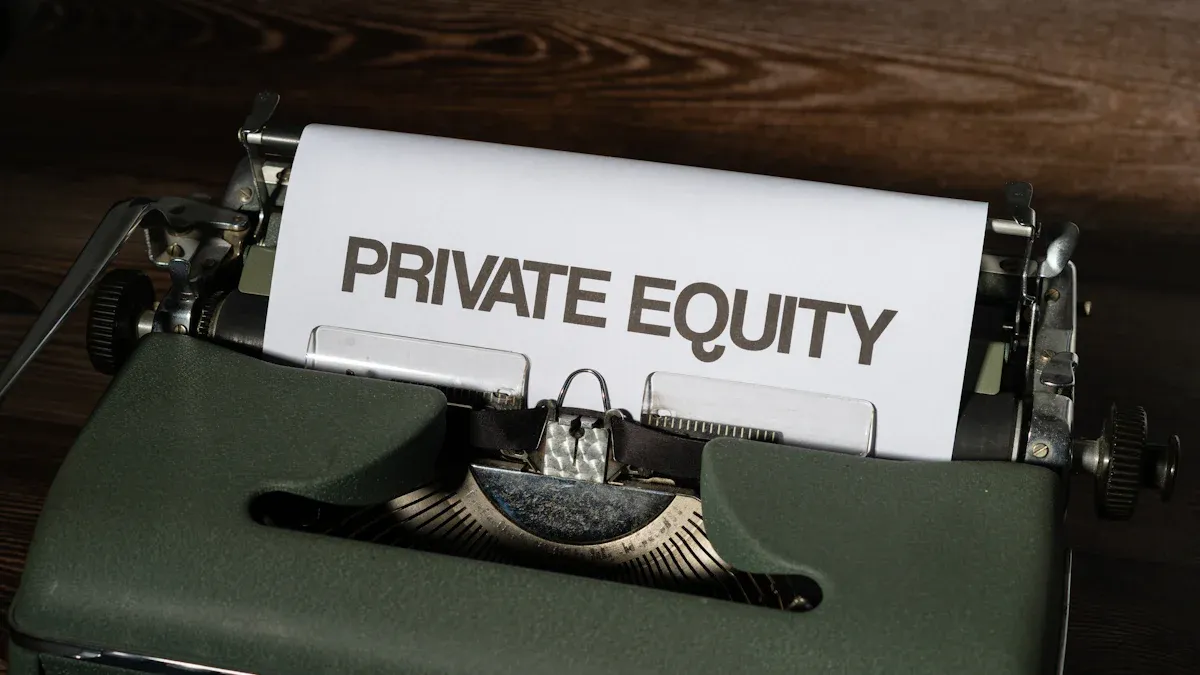I started reading Bad Company: Private Equity and the Death of the American Dream by Megan Greenwell. The book made me feel shocked right away. Private equity does more than make news. It changes people’s lives.
New studies show that when there is a lot of economic inequality, it is harder for people to move up in life. This makes the American Dream harder to reach.
Key Takeaways
Private equity often hurts workers. It can cause people to lose jobs. It can make companies owe a lot of money. It can make services worse. This affects real people and their towns in big ways.
Economic inequality gets worse when private equity helps rich people. It makes it harder for many people to get good jobs. It also makes it harder to have better lives and reach the American Dream.
The book uses good research and real stories. This helps readers see how business choices change daily life. It shows why these choices are important.
Book Overview
Premise
I thought this book would be boring and all about business. But it was not boring at all. The story felt real to me. The book explains how private equity affects normal people’s lives. Greenwell does not just use numbers. She tells how private equity deals can change whole towns, jobs, and families.
She follows four workers from different places. Their stories made me think about my own job. Each worker gets a new boss and new rules. Sometimes, they even lose their jobs. The book asks hard questions. Who wins when a private equity firm takes over? What happens to the workers who do the real work?
Private equity portfolio companies are about 10 times more likely to go bankrupt than those without private equity owners.
Tactics like sale-leasebacks and dividend recapitalizations often leave companies with heavy debt and less stability.
In nursing homes, private equity investment jumped from $5 billion to over $100 billion since 2000, with reports of staff cuts and poor care.
Scope
Bad Company: Private Equity and the Death of the American Dream by Megan Greenwell is not just about money. Greenwell talks about stores, hospitals, newspapers, and grocery stores. She shows how private equity’s short-term plans can cause layoffs and worse service. Sometimes, it even closes businesses.
I saw that the book does not only blame private equity. It also says some research, like studies from UNC Kenan-Flagler, finds private equity can help jobs and profits sometimes. Still, the stories in Bad Company: Private Equity and the Death of the American Dream by Megan Greenwell made me feel worried. The mix of real stories and facts makes this book scary for anyone who cares about jobs in America.
Main Themes
Economic Inequality
Reading this book late at night, I felt a chill run down my spine. Greenwell paints a picture of economic inequality that feels both personal and national. She shows how private equity can make the rich richer and leave regular workers behind. I saw numbers and stories that made me pause:
The World Inequality Database says the richest 1% in the U.S. have grabbed a much bigger slice of the pie since the 1970s. That fact alone left me gasping.
Some experts argue about these numbers. They say tax changes and reporting tricks might make the gap look bigger than it is. Still, I could not ignore the feeling that the rules favor those at the top.
Piketty’s research says inequality is not just a natural thing. It comes from choices—like tax laws and who gets a say in politics. Sweden changed its story with fairer taxes and strong social policies. The U.S. did the same for a while, but since the 1980s, the gap has grown again.
Note: Greenwell does not just throw numbers at you. She connects them to real people, making the problem feel urgent and real.
Industry Disruption
I have to give props to Greenwell for showing how industry disruption hits home. She does not just talk about Wall Street. She brings in stories from grocery stores, hospitals, and newspapers. I saw how private equity can shake up whole industries, sometimes for the worse.
Amazon started as a bookstore. Now it runs everything from cloud computing to delivery trucks. That kind of change can wipe out old jobs and create new ones, but not always in the same towns.
New tech like blockchain promises to change how we use money and run businesses. I felt both excited and nervous reading about these shifts.
The book points out how companies like Uber and Lyft tell different stories to investors. Uber wants to rule the world. Lyft sticks to the U.S. These choices change how much money they get and how they treat workers.
In journalism, I read about how smartphones and the internet have made old jobs disappear. Reporters now face job cuts and new rules. It is not just about losing a job. It is about losing a way of life.
Human Stories
What really got me were the human stories. Greenwell follows four workers. Their lives changed overnight when private equity took over their companies. I could not put it down. I felt their fear, hope, and anger.
One worker lost her job at a grocery store. She had worked there for years. Suddenly, new owners cut hours and changed schedules. She had to choose between her job and her family.
Another story follows a nurse in a private equity-owned nursing home. Staff cuts made her job harder. She worried about her patients every day.
Greenwell does not just show victims. She shows people fighting back, trying to save their jobs and their towns.
Tip: If you care about real people, not just numbers, these stories will stick with you long after you finish the book.
Author’s Approach
Writing Style
I’ll be honest, I started this book expecting dry business talk. Instead, Megan Greenwell’s writing style surprised me. She writes like she’s talking to you over coffee, not lecturing from a podium. I noticed:
Short, punchy sentences that kept me turning pages late into the night.
Real people’s voices, not just business jargon.
A mix of facts and feelings, which made the heavy topics easier to handle.
I learned that experts use tools like Lexxie3 and Arcadia to break down writing styles. They look at things like word frequency and paragraph length. Some even use algorithms to see what makes an author’s voice unique. I didn’t need fancy software to feel the difference here. Greenwell’s style made the stories stick with me.
Note: Some readers might want more numbers or charts, but I liked the balance of story and fact.
Research and Evidence
Greenwell packs the book with research and evidence. She pulls from studies, interviews, and real-life examples. I saw her use:
Data from places like the World Inequality Database.
Stories from workers and experts.
References to academic research, like UNC Kenan-Flagler’s studies.
Researchers say that combining numbers with reader reactions gives the best results. Greenwell does this well. She doesn’t just throw stats at you. She shows how those numbers play out in real lives. I sometimes wished for more direct reader surveys, but the mix of sources felt strong. Her approach made me trust her, even when I wanted more proof.
Strengths and Weaknesses
Highlights
I want to give Greenwell credit for her humane perspective. She focuses on real people, not just numbers. I could feel each story in the book. The investigative depth is easy to see. Greenwell looks deep into facts, interviews, and research. She does not just look at the surface.
Greenwell uses stories that fit the context, so the book feels personal and real.
She shows data in a way that helps readers see the big picture without confusion.
Limitations
To be fair, the book has some weak points. I saw a few things that made it less strong:
Reviewer subjectivity and bias can change how stories are told.
Editorial choices are not always explained or clear.
The book does not always link survey data to real action steps.
I wanted to know more about outside factors, like how different industries or cultures might change things.
Sometimes, the book seems to focus too much on one side and misses other views.
Impact and Relevance

Current Debates
Private equity feels like a hot topic every time I scroll through the news. I see people arguing about whether it helps or hurts regular workers. After reading this book, I started paying more attention to the numbers behind these debates.
The Bain Global Private Equity Report 2025 says private equity firms have a lot of money waiting to be invested, but they face big problems with getting cash out to their investors.
Many firms struggle to raise new money because their old investments are not paying out as much as before.
Deloitte points out that private equity could have a $3.8 trillion chance to grow, but only if they get better at managing their money and finding new ways to invest.
I noticed that 28% of investors feel disappointed with their returns, and 70% of executives worry about the economy.
Firms now try new things like private credit and infrastructure, but this makes their jobs harder and brings more rules to follow.
I felt surprised by how much these business choices affect real people. The book made me see that private equity is not just about numbers—it shapes jobs, towns, and even whole industries.
The American Dream
Reading about the American Dream in this book made me stop and think. The dream used to mean owning a home, having a steady job, and building a better life for your kids. Now, it feels like that dream keeps moving further away for many people.
The U.S. has changed a lot. More babies are born into families of color, and by 2044, non-Hispanic whites will no longer be the majority.
Immigration stays high, making the country more diverse than ever.
Since 2008, incomes have not grown much, and people feel less sure about their future.
I learned that the meaning of the American Dream has shifted. It used to be about everyone having a fair shot. Now, it sometimes feels like a race for stuff—bigger houses, more things.
Some experts, like Michael Strain, say the dream is still alive. He points to rising wages and more jobs for the middle class. I want to believe him, but the stories in this book left me worried.
The book made me ask: Is the American Dream still possible, or has private equity changed the rules for good?
I think you should read Bad Company: Private Equity and the Death of the American Dream by Megan Greenwell if you care about business, money, or fairness.
The book uses real stories and strong research. It made me think a lot, even though I wished it gave more answers.
I give it a 7 out of 10. It is a good book if you want something that stays in your mind.
Sip The Unknown—Discover Stories You Never Knew You’d Love!
Dionysus Reviews Has A Book For Every Mood
Biography & Memoir
Fiction
Mystery & Detective
Nonfiction
Philosophy
Psychology
Romance
Science Fiction & Fantasy
Teens & Young Adult
Thriller & Suspense
Frequently Asked Questions
What surprised me most about this book?
The real stories hit me hard. I felt the fear and hope of workers. I did not expect to care so much about their lives.
Does the book offer any solutions to private equity problems?
I did not find many clear answers. Greenwell shows the problems but leaves most solutions open. I wanted more ideas for fixing things.
Is this book too technical for someone new to business topics?
Not at all! Greenwell uses simple words and real-life stories. I followed along easily, even when she explained tough business ideas.









